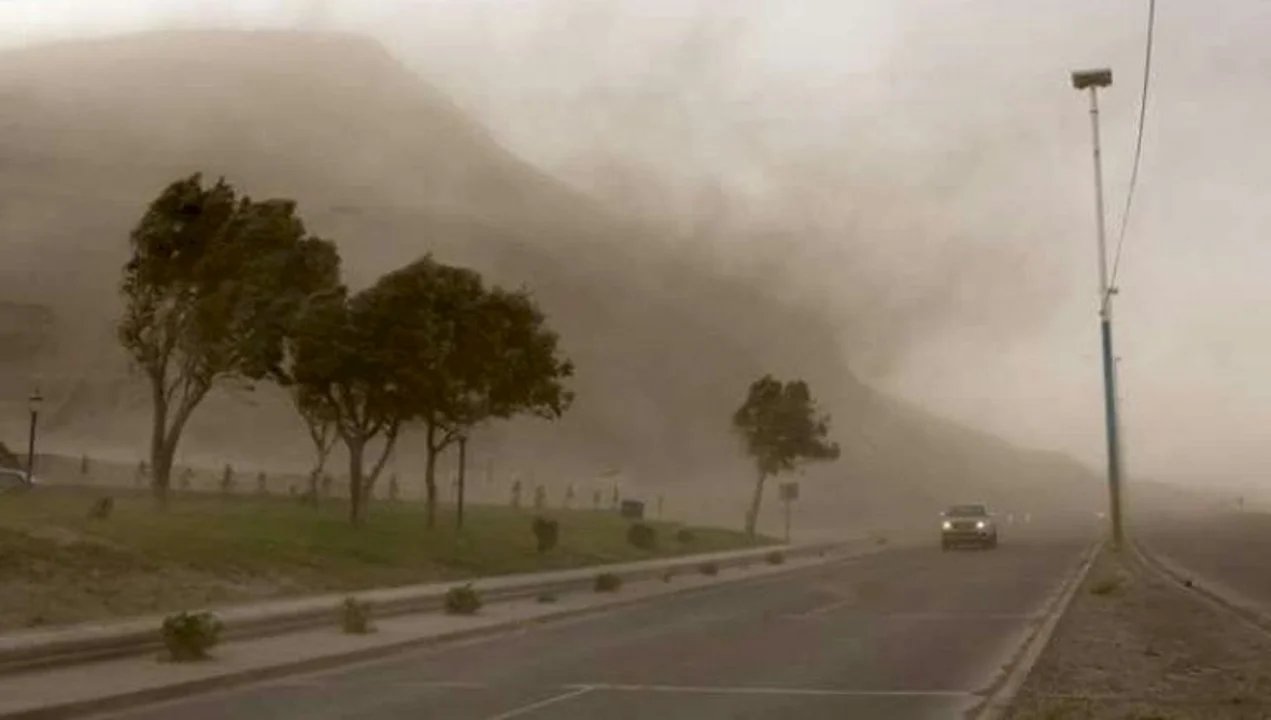In recent years, the Earth has been sending us clear and alarming messages: the planet is overheating, air pollution is worsening, and extreme climate events are becoming more frequent and severe. A new report published by the World Meteorological Organization (WMO) and Climate Central reveals that climate change has reached unprecedented levels. Between December 2024 and February 2025, the global average temperature surpassed 1.5°C above pre-industrial levels for the first time, making 2024 the hottest year in the past 175 years.
Argentina: The Worst Climatic Anomaly in South America
The study also highlights that Argentina recorded the most severe climatic anomaly in South America during the first quarter of 2024. The temperature deviation in Argentina was 0.9°C above the historical average, followed by Venezuela, Paraguay, and Ecuador (0.7°C), Guyana and Bolivia (0.6°C), Chile (0.4°C), and Colombia (0.3°C). During the austral summer, the temperature deviations reached nearly one degree above the average of the past 30 years.
Extreme climate events have had devastating consequences across the continent. In early March 2025, severe flooding in Bahía Blanca, Argentina, resulted in 16 fatalities, while wildfires raged in Chile, droughts affected Mexico and Central America, and heatwaves struck Argentina. These extreme conditions have placed immense strain on energy demand and public health, especially in major cities such as Buenos Aires, Bahía Blanca, Córdoba, and Rosario.
A Global Crisis with Devastating Consequences
The report details 100 extreme climate events across the Americas in 2024, including heatwaves, droughts, floods, and tropical cyclones. These disasters resulted in 354 deaths, 1.1 million injuries, and nearly 29,000 displacements. In the Caribbean, heavy rainfall and storms significantly impacted La Guajira, Cesar, and Sucre.
Celeste Saulo, president of the WMO, emphasized the urgency of addressing climate change: “Although one year above 1.5°C does not mean that the long-term goals of the Paris Agreement are unattainable, it is a wake-up call for immediate action.” She also pointed out that human-induced climate change, driven by fossil fuel combustion, is reaching irreversible levels.
The Ocean is Heating Up, and Sea Levels Are Rising
The report highlights the alarming rate of ocean warming, which has doubled over the past two decades compared to 1960-2005. The sea level has also risen at twice the speed recorded since the beginning of satellite observations. The cryosphere, or frozen parts of the Earth, is melting at an unprecedented rate. Glaciers continue to shrink, and Antarctic sea ice has reached its second-lowest extent on record.
The consequences of these changes are already being felt worldwide. One in five people experienced the direct effects of climate change daily during the study period, with 394 million people enduring over 30 days of extreme heat. Africa was the most affected continent, with 74% of its population facing record-breaking temperatures.
A Crisis Affecting Biodiversity and Food Security
Beyond temperature and sea level rise, climate change is drastically affecting biodiversity. Ecosystem disruptions threaten food security and access to potable water. The melting of glaciers, such as the Ampay Glacier, is a stark reminder of the long-term consequences of rising global temperatures.
The WMO report warns that hurricanes, storms, and heatwaves are now impacting regions historically untouched by such extreme events. Scientists predict that shifts in climate patterns will exacerbate droughts and impact global food production, increasing the cost and risk for humanity with every fraction of a degree in global temperature rise.
Urgent Call for Global Action
According to Saulo, “The data from 2024 shows that our oceans continued to heat up, sea levels kept rising, and the cryosphere is melting at an alarming rate. All ten of the warmest years on record have occurred in the last decade (2015-2024).”
In response to these findings, the WMO and the global community are intensifying efforts to strengthen early warning systems and climate services to aid decision-makers and societies in adapting to extreme weather conditions. “We are making progress, but we need to go further and faster. Only half of the world’s countries have early warning systems. This must change,” warned Saulo.
Argentina’s Struggle with Extreme Heat and Wildfires
The National Meteorological Service (SMN) reported record-breaking temperatures across several provinces, raising concerns about agricultural productivity. Extreme heat and prolonged droughts have significantly impacted crop yields.
During the study period, Argentina experienced 40 days of extreme heat conditions, 14 of which were directly attributed to climate change. Additionally, the climate crisis has intensified wildfires in regions such as Patagonia and Litoral, where high temperatures and prolonged drought have fueled the spread of fires.
A Race Against Time
The latest WMO report serves as a dire warning: climate change is accelerating, and its impacts are becoming more severe. The time to act is now. Without immediate and comprehensive global action, the world risks reaching climate tipping points that could take centuries or even millennia to reverse.
Every fraction of a degree matters. The decisions made today will determine the future of our planet and humanity. Governments, industries, and individuals must commit to reducing greenhouse gas emissions and investing in sustainable solutions to mitigate the devastating effects of climate change.
